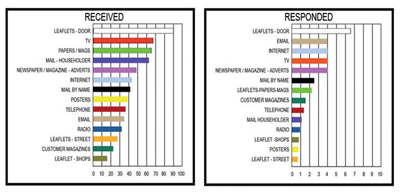|
Firstly I
would like to take this opportunity to thank all those who voted for me at
last month’s AGM. The attendance was once again very small, but everybody
conducted themselves in an exemplary manner. There was humour and even a
touch of AGM’s of old between two ancient adversaries - trust Toggers to
attract a dig! The materialistic age? When I came into the trade in the early 60s, the life span of a London taxi was ten years. Owners who wanted to licence a taxi over that age were subject to quarterly inspections instead of annually. I don’t recollect a ten-year limit being an issue back then, maybe because nobody knew any different. Then when I first got my Bill, I worked a garage cab on the clock with earnings being split approx 50-50. I then bought a taxi with just two plates remaining, which on expiring, was sold to a garage up in the Midlands. By then I had sufficient funds to be able to visit M&O in Wandsworth, confident in the knowledge that I could afford to purchase a brand new cab. Nowadays, it seems the moment a knowledge boy or girl get their Bill, they’re off to the cab showroom to be greeted with coffee in china cups and possibly even donuts while spending big bucks on the latest model with all the whistles and bells and only later to wonder how many hours out of 24 they will have to work to pay for it! Exactly how much advice they are given by the PCO on the subject of buying their first taxi I don’t know, but the advice I got was that all taxis have the same earning capacity irrespective of age, so start with the minimum of outlay and put sufficient capital aside each month for its eventual replacement and apply the same policy throughout your taxi career. I mention the above, partly as a follow up to the letter from Martin Freeborn (C67) in last months Call Sign, when limited space prevented me from mentioning what I believe could be an additional benefit to the Mayor’s attempt at removing the dirtiest cabs from London. That is it could also change the attitude of many similarly attired drivers. At a guess, I would say the vast majority of smartly dressed cab drivers are those that drive new cabs, which makes sense. And I don’t necessarily mean brand new cabs, but new to the driver. Driving an old |

boneshaker with wind and rain blowing
through the gaps in the doors doesn’t encourage dressing in clothes for
style. So I can understand in some cases - and I stress some cases - why
when I see drivers sloppily dressed, it could well be an extension of the
state of their vehicle. Who markets who? |
circumstances, it was an absolute disaster, the final cost
was huge and I was slaughtered! It was then decided we should use marketing
professionals. A company was selected who were confident of success, simply
on the fact that we had over 2000 members traveling all over London 24/7.
They introduced dozens of ideas involving our members and every idea was a
complete failure, simply because our members would not participate. Needless
to say the marketing company soon realised at theirs and our cost that
selling the service industry - and particularly one with no control over its
workforce - is totally different to selling tangible products. Hence the
reason you rarely, if ever, see the top PH companies advertising on TV or
taking full-page spreads in the national press. The reason being it would be
counter productive. The demand for their service would outweigh supply
tenfold and they wouldn’t survive. Successful marketing of a unique service
such as ours has to be done in such a way as to reach a target audience as
opposed to a wide audience. In our case the target audience is the casual
cash user, users who if let down cause the least damaging effect. And
preferably users in the areas that could guarantee coverage such as
Westminster, Kensington, Chelsea, St John’s Wood, Islington, Stepney etc.
Areas that the majority of our 2000 vehicles cover 24/7 like ants. Imagine
how many cards could be distributed in a month if all of you made a
concerted effort and had a belief in your Society, instead of complaining
about the work you refuse to target being lost to PH? For those who like
statistics to support facts, I include a bar chart of
responses to letterbox marketing over other means of direct marketing. It’s hard to believe in an age of high technology that letterbox marketing is still the most effective way to generate spur of the moment business. And by co-incidence, on the first day of business after the AGM I was approached with the opportunity to embark on a joint venture with the Met Police to distribute our literature in the very boroughs I mention above to generate more cash work and spread our name amongst the general community as opposed to solely the business sector. I hastily designed an appropriate A5 leaflet in line with the new colourful tip-up seat that I am about to produce and had our new printers run off several hundred thousand, plus 10.000 extras for you the members to distribute. In the past I have been sceptical about using companies to distribute door-to-door leaflets because from experience of old, there were instances where more leaflets were found in dumpsters than letterboxes! However, in this instance as it is being associated with the Met Police, I have been assured together with references that the company involved have a proven record of professionalism in doing a job of proper distribution. However that doesn’t mean you no longer have to play your part. In fact, distributing our cards alongside our flyers would have a doubling effect on advertising our name and the service we offer.
Allen Togwell |
|
The response of letterbox marketing over other forms
|
||
